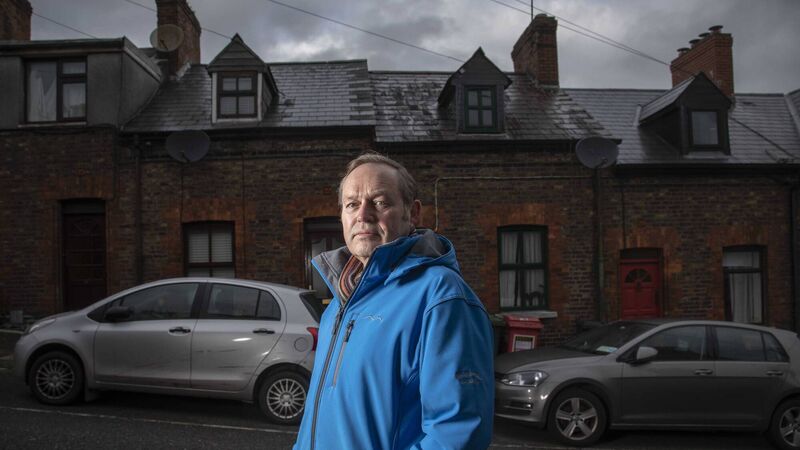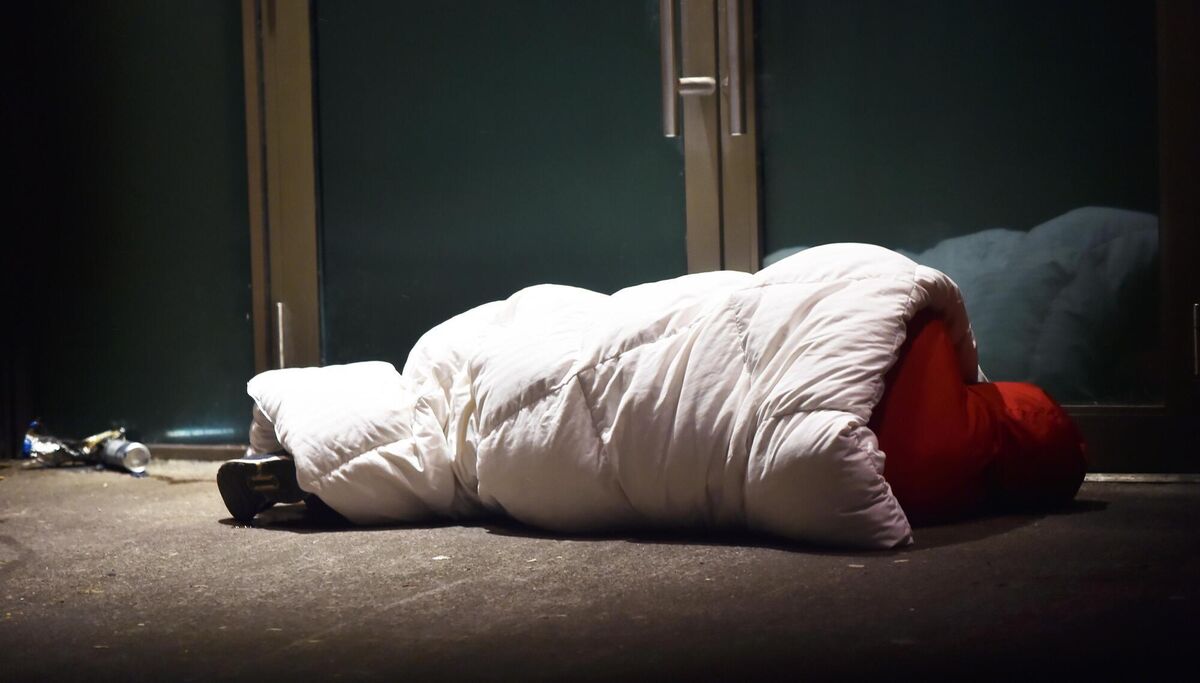Michael Moynihan: Christmas is coming — and the housing crisis doesn't just go away

Dermot Kavanagh, head of Cork Simon Community. Picture: Clare Keogh
THE goose is getting fat.
You hardly need the first part of that rhyme, given the season is all around, as you’ve no doubt noticed. One of the great cliches is to announce that it’s not Christmas for everybody, but there’s a reason such expressions become fossilised through overuse, to use Flann O’Brien’s definition of a cliche.
It’s the core of truth that lies within.
I wanted to talk to someone who could expand on that core of truth, and I turned to Dermot Kavanagh, director of Cork Simon. He has decades of experience with the charity going back to volunteering in his teens “at the shelter, then on John St, which was rough and ready compared to the modern era”.
“Back then, Simon was a young organisation but was already pretty well regarded in the city,” he says. “The famous picture of the guy with the shopping cart collecting food from The English Market — that’s part of the roots of Simon as well.”
Kavanagh went to college and worked in Merchants Quay Ireland homeless and drugs services in the 1990s. After 16 years, he came back as director of Cork Simon 10 years ago. It’s a perspective which allows him to tease out the differences between the decades.
"Brendan Ryan was involved with Simon for years, and he was elected as a senator from the university constituency — he brought forward draft legislation which would provide a definition of homelessness and the right to shelter.
“As a result, Padraig Flynn, then minister for the environment, brought in legislation bringing in that definition. From the mid-1990s into the 2000s, people began to understand more widely in society that homelessness was a problem that had solutions.
“Back in the day — the ’70s and ’80s — people who were homeless were viewed with a ‘God help us, what can you do’ attitude, that if they had personal problems they should be able to either pull themselves up by their own bootstraps or suffer the consequences.
That, in turn, became part of the broadening of Simon’s role, as Kavanagh points out: “In the ’90s and 2000s there were moves that went beyond simply providing shelter for the night.
“That’s what we’re probably best known for, though we do a lot more than that. A number of high-support houses were developed around the city to provide long-term support and accommodation for people who were homeless for a long time and who needed round-the-clock support,” explains Kavanagh.
“In more recent years, there’s been a big focus on helping people out of homelessness and into housing with wraparound supports at the earliest possible opportunity. That’s a very successful way to combat homelessness, and it’s called Housing First.”

Simon adopted that model in 2013 and — crucially — it’s maintained records on its work and results.
“From 2013 to 2020, we’ve housed 55 people, mainly long-term homeless people who needed lots of support, and as of 2020, only 5% of them were back homeless services.”
But over that seven/eight-year period, they’ve found another factor complicating matters: The housing crisis.
“And it really is a crisis,” says Kavanagh.
“In August, though, I understand there were just 11 one-bed apartments [that] came on the market to rent in Cork, and the average rental was €1,200 per month. With the level of housing assistance available for people leaving homelessness in the region of €650 per month, it’s impossible to find anything.
“In the past, it was possible to help people out of homelessness via the private rental sector, but that’s much more difficult now.
“And things get more and more difficult with more people becoming homeless — you might enter homelessness because of a mix of personal stresses and not being able to find an affordable place, but if you’re homeless for a long period, then things start to seem more and more hopeless in terms of getting your life back on track.
In response, Simon tries “a twin-track approach”, says Kavanagh. “Building up our own capacity as a housing provider and doing everything we can as a social care organisation to ensure that people, when they are homeless, have positive engagement in activities like work-training employment and so on — doing what we can to move people into housing and to help in addressing other problems they may have at that point.
“It does work, but the single biggest challenge is having enough housing. How do you compare now to the ’70s or ’80s? It’s still about people who are very much marginalised.
“Back then homeless people weren’t even counted, so it was difficult to understand the scale of the problem, while now we have a bigger city and a housing crisis, and the number of single homeless people is very high — many
homeless families were sorted out in the last couple of years. There has been some improvement in that area.”
Is it ever-dispiriting to see the obsession with property and house makeovers, the widespread dereliction, and then to face the realities at the coalface?
“Sometimes, in recent years, you can feel that not enough is being done in terms of prevention of homelessness.
“That’s worrying, certainly. You sometimes have people coming in simply because it’s so hard to find any kind of affordable accommodation in the city these days: it’s become much harder over time.
There is a more positive side though, he says: “Through the variety of housing and housing support services we also see people stuck in homelessness for years coming out the other side, rebuilding their lives, making huge progress — that’s what keeps us going. There are plenty of positive stories.
“But the numbers in recent years have been going up and up. That is a concern.”
Kavanagh praises the people of Cork for their support, saying it’s been a constant over the years. “There’s a great spirit of community which always shows up at Christmas — people making donations and so on — and which is hugely heartwarming.
"We’re always looking for that support, and we’re always appreciative when we get it.”
You know what to do to help make it Christmas for more people. Go to corksimon.ie






